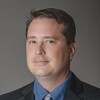When SPE’s international health, safety, and environment (HSE) conference opens in April, it will bring together professionals from around the world. This gathering of professionals, on top of the technical information shared, is what makes the conference so important, said Jack Hinton, program cochair of the conference's executive committee and chief health, safety, and environment officer for Baker Hughes, a GE company.
Hinton said the range of topics covered was what first attracted him to SPE’s HSE conferences back in 1998 but his first conference had more in store for him.

“What I did not appreciate until I got there and experienced the conference was the networking opportunity, developing relationships with professionals I never would have been able to meet,” he said. “It was the relevance and the myriad of things that were appropriate that first attracted me. But, I think the real hook was being able to sense that you’re not alone and the passion that other professionals have.”
The SPE International Conference and Exhibition on Health, Safety, Security, Environment, and Social Responsibility (HSSE-SR) will be held 16–18 April in Abu Dhabi.
The long name of the conference hints to the breadth of topics covered there. In addition to an executive plenary session, the conference features four special sessions, six panel sessions, and 33 technical sessions presenting 130 papers. While the topics are diverse, they all fall under the banner of sustainability. The theme of the conference and its plenary session is “Continuing HSSE-SR Excellence for a Sustainable Future.”
As with all technologies, those in the HSE discipline continue to evolve, and the conference will present maturing technologies as well as those in nascent stages. “That’s the unique thing about SPE and these conferences,” Hinton said. “As a company or as professionals, you may not be as up-to-date in the advancing of how to better manage HSE. In being able to go to the conference, you get exposed to whatever that next generation is. And the next generation of things could be at that very nascent view, where they’re just starting, or it could be that they’ve gone beyond nascent and now they’re practicing and they’re being applied. Or they’re being perfected.”
Hinton pointed to the evolution of the concept of sustainability. “It originally started around being socially responsible,” he said.
That idea of social responsibility has grown. The oil and gas industry now, he said, “is continuing to morph beyond being just socially responsible to concepts of being sustainable, that you’re actually going to be here as a successful business because you are responsible,” he said. “You’re responsible to your workers. You’re responsible to your contractors. You’re responsible to your supply chain. You’re responsible to the communities that you do business in, and you’re responsible to the broader society. And we firmly believe that, the more responsible you are, you will then be sustainable, a long-lasting part of the fabric of society.”
While some technologies and concepts such as sustainability are already flowering, other concepts are just beginning to sprout. One of the special sessions presents the concept of a circular economy, which “looks at the full evolutionary cycle, the complete supply chain,” Hinton said. “I’m talking about a more holistic view of supply chain—cradle to grave—and impact to society, particularly around exhaustible resources such as oil and gas.”
Hinton said that a circular economy considers more than just where an oil company handles the hydrocarbons. “Our solutions have to be more circular about everything that society does in order to use the energy, to help find it and produce it,” he said, “to make the entire network sustainable, not just one piece.”
In order to consider how the industry affects all aspects of society, the discussions must include everyone affected. Hinton said that this conference is the perfect place for these discussions. The conference, he said, “creates a forum for healthy dialogue and debate around existing emerging issues, particularly to advance them.”
This healthy dialogue was not always the case. Hinton pointed out that, years ago, the industry would simply give to society what it thought was best “without really listening back.” Times have changed. “What we do now is we bring in the society and the dissenting voice,” Hinton said, “not necessarily just the friends of the industry, but those who challenge our industry.”
This conference gives attendees the opportunity to join that conversation, and, in fact, everyone is encouraged to contribute to it. “This is an opportunity that each of us has to be a voice in the room,” Hinton said, “to help really shape where the industry goes and to really understand what are the issues that we need to tackle. And I think that one of the upsides of the conference is that we try to structure it so you don’t just come and you’re fed, you’re just given stuff. There’s an opportunity to influence where the industry goes.”
With this robust dialogue and the amount of information presented and discussed, the conference has become a “one-stop shop” to improve an organization’s HSE performance. “You can come to one spot and be able to look at your own programs to determine where there might be gaps. That helps you then better focus on what you need to do,” Hinton said.
“I don’t know where else you can get that.”


